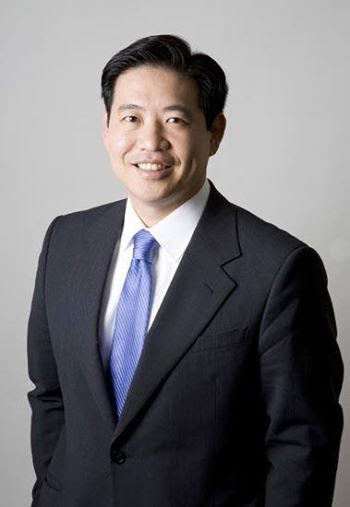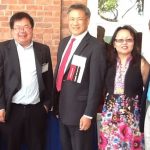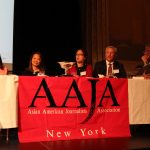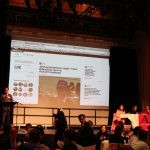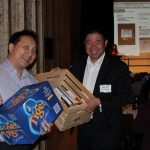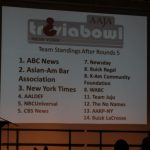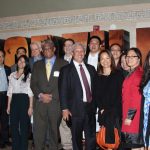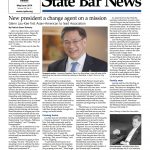//photos.gstatic.com/media/slideshow.swf
On July 16th, NYCLA and AABANY honored Glenn Lau-Kee for his historical accomplishment of becoming the 117th President of the New York State Bar Association and the first Asian-American to hold this position.
Margaret Ling, Chair of NYCLA’s Asian Practice Committee and co-chair of AABANY’s Real Estate Committee, began the program by introducing Presiding Justice of the Second Department, Hon. Randall T. Eng, to present the first remarks of the evening.
Margaret then introduced representatives from the many organizations Glenn has impacted or been part of, many of whom shared personal stories of their work with or connection to Glenn. Among the speakers were Lewis Tesser, President of NYCLA, Bridgette Ahn, Vice President of Programs and Committees for KALAGNY, Nadine Fontaine, Immediate Past President of the Metropolitan Black Bar Association, Rosevelie Marquez Morales, Co-Chair of NYSBA’s Committee on Diversity and Inclusion, Alex Lee, Vice President of Finance and Development for NAPABA, and Clara Ohr, President of AABANY.
NYCLA’s Solo and Small Firm Committee was a co-sponsor of the event, and Co-Chairs Tsui Yee and Paige Zandri offered remarks on behalf of that committee. Tsui also co-chairs AABANY’s Immigration and Nationality Law Committee. Vince Chang, a Past President of AABANY, presented remarks on behalf of NYCLA’s Federal Courts Committee, another co-sponsor of the event.
Representatives from Federal, State and City government were on hand to honor Glenn. The Governor’s Office, represented by Mecca Santana, Chief Diversity Officer, presented a greeting letter from the Governor to Glenn. Sandra Ung, Chief Legislative Assistant for Congresswoman Grace Meng, presented a commendation to Glenn from Congresswoman Meng’s office. Jimmy Yan, Chief Deputy General Counsel for New York City Comptroller Scott Stringer, offered congratulations on behalf of the Comptroller.
All of the speakers extolled Glenn for his outstanding record of leadership and status as a significant role model for Asian American, minority and under-represented groups.
After all the speeches were given, Glenn’s father, Norman Kee, a trailblazer in his own right, introduced Glenn. Glenn expressed his gratitude for the honors bestowed upon him at the reception. He urged everyone, especially young lawyers, to get involved in bar associations – any bar association – as a way to develop as lawyers and serve the profession.
Congratulations to Glenn on his historic achievement, and thanks to Margaret Ling for organizing the reception and NYCLA for hosting it. Thanks to all the government officials, bar leaders, friends and family who came out to celebrate.




